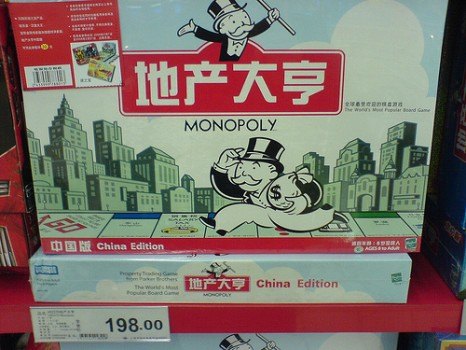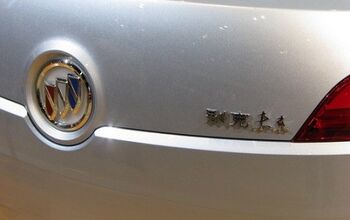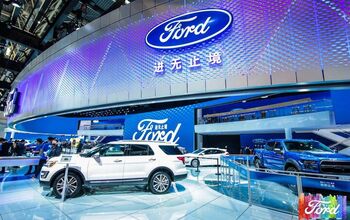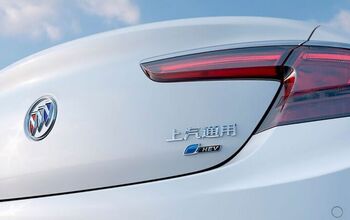China Keeps GM and Ford Guessing

Intentional ambiguity, id est, “keep ’em guessing,” is a tried and true tool in politics and business negotiations. Case in point: For months, we’ve been following the on-again, off-again attempts to marry cast-off Detroit brands with Chinese buyers. Now, as some deals finally look like they are coming together, China’s top industrial planning official comes out and says that local auto makers lack “sufficient capability” for overseas brand buying deals, Gasgoo reports. Domestic auto makers aren’t ready yet “to go overseas and cooperate with big companies,” Chen Bin, head of the National Development and Reform Commission’s industrial coordination department, said in Beijing yesterday. WTF? (What Thinks Farago . . . .)
So whoa, how come Chinese car makers, Dongfeng and Changan, are reported as serious bidders for Ford’s Volvo unit, if their government doesn’t like it? Again, intentional ambiguity at work. Because wisely, Chen Bin added: “It’s up to them to make the decision and once they do, we will support them.”
So officially, the Chinese government thinks their carmakers are short in the sufficient capability dept. , and officially, the Chinese government thinks these brands are too expensive and their price may come down, but if their automakers insist, they’ll back them up. If they then fail? “We told you so.”
Intentional ambiguity may also bring the price down. As Gasgoo says, “The government’s reluctance to back overseas auto deals may hit GM and Ford, which are said to have separately held talks to sell Hummer and Volvo Car Corp to Chinese car makers.” Hit as in drive the price lower.

Bertel Schmitt comes back to journalism after taking a 35 year break in advertising and marketing. He ran and owned advertising agencies in Duesseldorf, Germany, and New York City. Volkswagen A.G. was Bertel's most important corporate account. Schmitt's advertising and marketing career touched many corners of the industry with a special focus on automotive products and services. Since 2004, he lives in Japan and China with his wife <a href="http://www.tomokoandbertel.com"> Tomoko </a>. Bertel Schmitt is a founding board member of the <a href="http://www.offshoresuperseries.com"> Offshore Super Series </a>, an American offshore powerboat racing organization. He is co-owner of the racing team Typhoon.
More by Bertel Schmitt


































Comments
Join the conversation
(Please note that the following is based upon memory, and not fact-checked, so potential errors of recollection are admitted in advance, and any correcting, or augmenting, commentary is both welcomed and appreciated.) Transport yourself back to 1992 or thereabouts when the Chinese announced they were going to allow more western automakers the privledge of producing vehicles there. China, Inc. played all sides against the middle, by announcing there would be a limited number of VM's awarded this right. (I think it was 2 or 3 initially). It was also announced that the winners would have some kind of exclusivity clause. VW had been there since the mid-80's,, Beijing Jeep even earlier. GM, DB, and Ford (probably others, but I don't recall), were all fighting for the nod, bidding up the cost of entry, and agreeing to demands, JV's? check! Technology transfer? sure! etc. The VM's were whipsawed in a fashion not seen since, well, since the VM's had dealt with their supply base. And what happened? After the winner was announced (and there were many pre-announcements just to add fuel to the competition), and a very short time had passed, China Inc. announced they were going to allow even more VM's in. Is it really any different now, in the way they approach buying the VM's expendable assets?? Looking forward to good discussion.